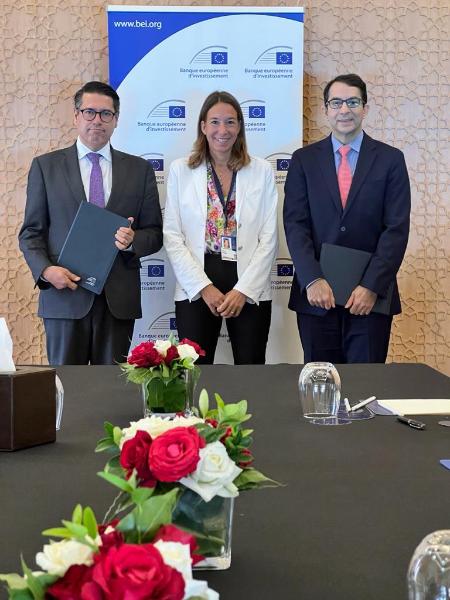
In a ceremony held in Marrakesh today, Vice-President Ricardo Mourinho Félix, of the European Investment Bank (EIB), and Ayhan Kose, Deputy Chief Economist of the World Bank and Director of the Prospects Group, signed a memorandum of understanding, marking the EIB's official entry into the Development Data Partnership. This step signifies a strengthened collaboration between major tech firms and international development organizations.
Vice-President Ricardo Mourinho Félix of the EIB stated, "Our partnership with the Development Data Partnership is emblematic of the EIB's commitment to innovation and actionable insights in our projects. With access to a richer dataset, we can drive better informed decisions that benefit not only Europe but the global community."
Debora Revoltella, Chief Economist of the EIB, said, "Joining the Development Data Partnership aligns seamlessly with our ambitions to drive environmental sustainability through our projects. The profound environmental insights we'll garner through this partnership will enable us to better assess the ecological impacts of our initiatives, steering us towards a greener future."
Ayhan Kose said, "We're thrilled to welcome the European Investment Bank into the Development Data Partnership. As the world faces complex challenges, collaborations like these become even more crucial. By harnessing the power of data, our collective efforts can drive more informed decisions, ensuring that development initiatives are not just effective but transformative."
The Development Data Partnership, established in February 2019, facilitates collaboration between technology companies and international development organizations for efficient and responsible use of private sector data. Its projects span across 13 Sustainable Development Goals, from leveraging mobile connectivity data to assess COVID-19 shocks in Sub-Saharan Africa to using machine learning for road safety audits.
The EIB joins a prestigious group of institutional members, including the World Bank, International Monetary Fund, Inter-American Development Bank, the Asian Development Bank, the European Bank for Reconstruction and Development, the United Nations Development Programme, and the Organization for Economic Cooperation and Development.

©EIB
Download original